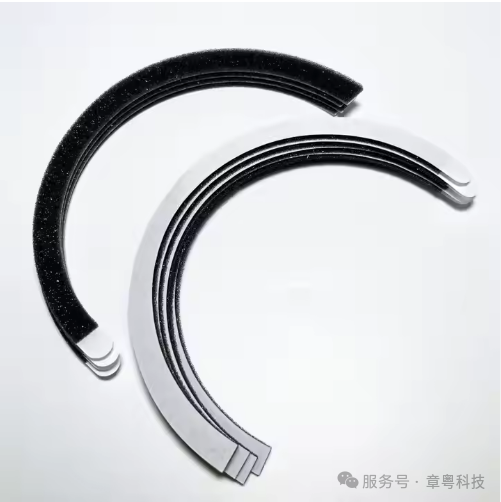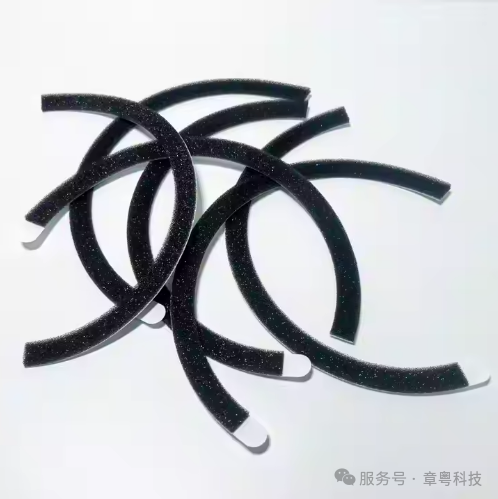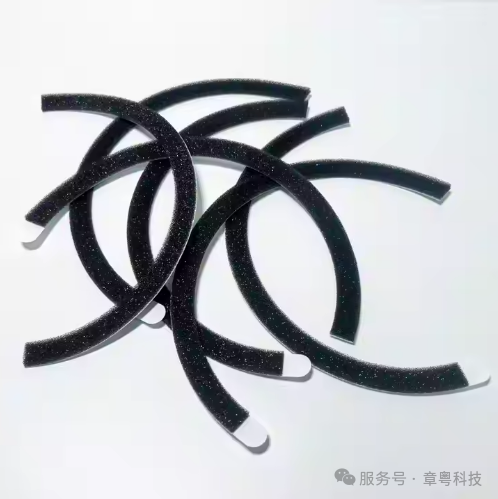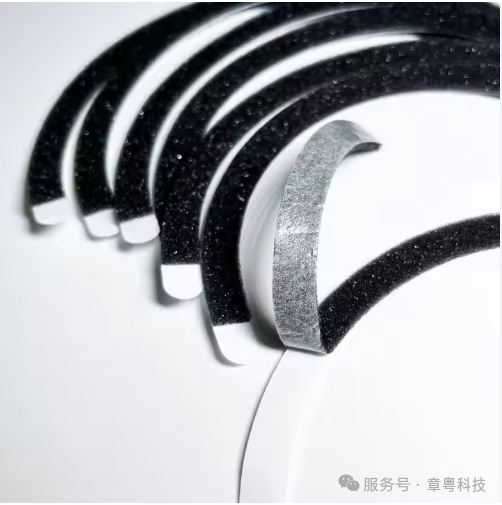𝑭𝒊𝒓𝒆𝒑𝒓𝒐𝒐𝒇 𝑭𝒐𝒂𝒎: 𝑻𝒉𝒆 𝑼𝒍𝒕𝒊𝒎𝒂𝒕𝒆 𝑮𝒖𝒊𝒅𝒆 𝒕𝒐 𝑭𝒍𝒂𝒎𝒆-𝑹𝒆𝒕𝒂𝒓𝒅𝒂𝒏𝒕 𝑭𝒐𝒂𝒎 𝑺𝒐𝒍𝒖𝒕𝒊𝒐𝒏𝒔
Mar 28,2025
1️⃣ Fireproof Properties of Fireproof Foam
🔹 Superior Flame Retardancy
Fireproof foam is specially treated with flame-retardant additives, significantly reducing its flammability. It works by slowing down flame spread, minimizing the risk of fire hazards.
🔹 Compliance with International Fire Standards
High-quality fireproof foams meet strict global safety standards, including:
UL94 (Underwriters Laboratories Standard) – Measures the flammability of plastic materials.
EN45545 (European Fire Protection Standard for Rail Vehicles) – Ensures fire safety in public transport systems.
FMVSS 302 (Federal Motor Vehicle Safety Standard) – Regulates fire resistance in automotive interiors.
These certifications make fireproof foam suitable for high-risk environments such as transportation, construction, and electronics.
2️⃣ Thermal Insulation Capabilities
🔹 Low Thermal Conductivity
Fireproof foam has a low thermal conductivity, making it an excellent insulating material for high-temperature environments. It prevents heat transfer, reducing energy consumption in buildings and industrial equipment.
🔹 High-Temperature Resistance
Unlike regular foam, fireproof foam maintains structural integrity even in extreme heat. It is ideal for:
✔️ Heat insulation for industrial machinery
✔️ Fire protection in HVAC systems
✔️ Thermal barriers in electronic devices
3️⃣ Sound Absorption and Vibration Damping
🔹 Excellent Noise Reduction
The porous structure of fireproof foam effectively absorbs sound waves, reducing noise pollution. It is widely used in:
✅ Recording studios and theaters
✅ Automotive and airplane interiors
✅ Office spaces and residential buildings
🔹 Shock and Impact Absorption
With its high elasticity, fireproof foam absorbs impact energy, preventing damage to equipment and materials. It is used for:
🔸 Industrial machinery damping
🔸 Protective packaging for fragile items
🔸 Automobile interiors for impact resistance
4️⃣ Lightweight and Flexible Design
🔹 Lightweight for Easy Installation
Fireproof foam is low-density, making it easy to transport, cut, and install in various applications. It reduces material costs while ensuring high performance.
🔹 Flexible and Moldable
It can be cut, shaped, and molded into different forms, adapting to complex architectural designs, automotive structures, and industrial components.

5️⃣ Chemical and Environmental Resistance
🔹 Resistant to Chemicals and Corrosion
Fireproof foam has excellent resistance to acids, bases, oils, and solvents, ensuring long-lasting performance in harsh environments such as industrial facilities and marine applications.
🔹 Eco-Friendly and Non-Toxic
Modern fireproof foams are manufactured with environmentally safe materials, complying with RoHS (Restriction of Hazardous Substances) regulations.
✔️ Non-toxic and safe for indoor use
✔️ Does not emit harmful gases when exposed to heat
✔️ 100% recyclable options available
6️⃣ Applications of Fireproof Foam
🔥 Construction and Building Industry
Fireproofing for walls, ceilings, roofs, and HVAC ducts
Insulation for commercial and residential buildings
Noise reduction for theaters and office spaces
🚗 Automotive, Aviation, and Railway Transport
Fire-resistant car seats, dashboards, and engine compartments
Aircraft cabin insulation for heat and noise control
Train interior panels for fire safety compliance
🔧 Electronics and Industrial Equipment
Thermal barriers in battery compartments
Fire-resistant electrical enclosures
Protective padding for industrial machinery
7️⃣ Common Types of Fireproof Foam
| Type of Foam | Key Features | Common Applications |
|---|---|---|
| Melamine Foam | High fire resistance, lightweight, sound-absorbing | Buildings, transportation, acoustic panels |
| Polyurethane Foam (PU Foam) | Good elasticity, thermal insulation | Furniture, packaging, automotive interiors |
| Rubber Foam | Chemical resistance, impact absorption | Industrial machinery, marine applications |
Each type of fireproof foam is designed to meet specific industry needs, providing tailored solutions for fire protection and insulation.
Conclusion: Why Choose Fireproof Foam?
Fireproof foam is a versatile, high-performance material offering:
✅ Superior flame retardancy for enhanced safety
✅ Effective thermal insulation for energy efficiency
✅ Sound and impact absorption for noise control and durability
✅ Lightweight and flexible design for easy installation
✅ Eco-friendly and non-toxic composition for sustainable applications
With its widespread use in construction, transportation, electronics, and industrial sectors, fireproof foam is an indispensable material for fire safety and performance enhancement.

Frequently Asked Questions (FAQs)
🔥 1. What makes fireproof foam different from regular foam?
Fireproof foam is specially treated with flame-retardant chemicals to slow down fire spread. Regular foam lacks this safety feature and is more flammable.
🔥 2. Is fireproof foam completely fireproof?
No material is 100% fireproof, but fireproof foam significantly delays ignition and reduces flame spread, increasing safety in hazardous environments.
🔥 3. Can fireproof foam be used outdoors?
Yes, weather-resistant fireproof foams are available for outdoor applications. They provide thermal insulation, fire resistance, and UV protection.
🔥 4. How long does fireproof foam last?
High-quality fireproof foams have a lifespan of 10+ years, depending on exposure to heat, moisture, and chemicals. Proper installation and maintenance extend durability.
🔥 5. Is fireproof foam safe for home use?
Yes, fireproof foam is safe for homes, especially for soundproofing, thermal insulation, and fire prevention in walls, ceilings, and attics.
🔥 6. Where can I buy high-quality fireproof foam?
Fireproof foam is available at construction supply stores, industrial material suppliers, and online marketplaces. Ensure the foam meets UL94, EN45545, or FMVSS 302 fire safety standards before purchasing.
Final Thoughts
Fireproof foam is an essential safety material used across various industries to provide fire resistance, thermal insulation, soundproofing, and impact absorption. Choosing the right type of fireproof foam enhances safety, efficiency, and durability in any application.
For those looking to invest in fire-resistant solutions, fireproof foam is a cost-effective and reliable option for building safety, industrial protection, and energy efficiency.
👉 Want to learn more? Check out top fireproof foam suppliers for the best options! 🔥
Boost Your Knowledge & Stay Safe with Fireproof Foam!
Would you like more recommendations on fireproof materials? Let me know, and I'll guide you to the best solutions for your needs! 😊
Contact Us
E-mail :
Phone/Wechat:
Add.:
Room 301, Building 1, No. 1 Hehe Street, Juzhou, Shijie Town, Dongguan City, Guangdong Province, China

